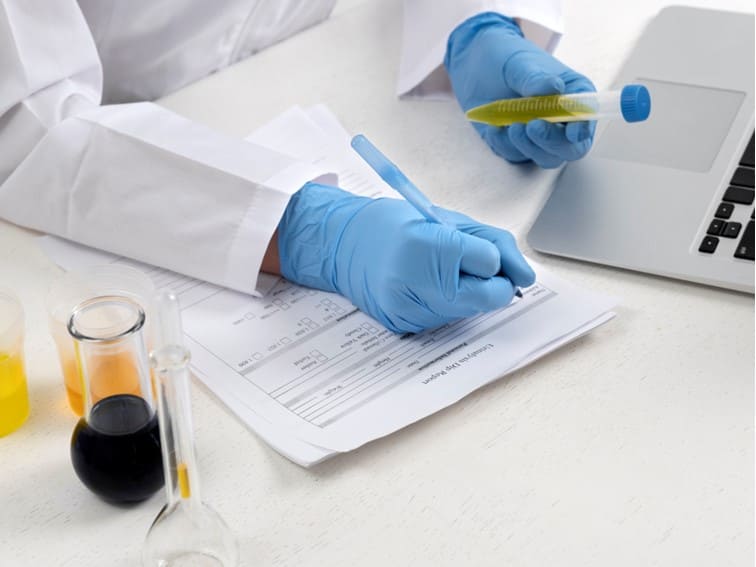Proteinuria
Normal people do not have any protein leaks in their urine. Protein leak occurs when kidneys don’t work properly as they should. It can affect people of any age from children to elderly age groups and also both sexes.
People with this condition leak a large amount of protein into their urine. It can affect people of any age and it is common in people of Asian background. Nephrotic syndrome may affect adults and children of both sexes and of any race
Kidneys have filtering units called nephrons. When these units get damaged protein leak occurs. Protein leaks in the urine can vary from mild to large amounts of proteins in urine. When large amounts of protein leak in urine, the amount of protein in the blood reduces, and therefore, some fluid leaks out of the bloodstream into tissues causing swelling in the legs, arms, and abdomen (edema).
Patients are said to have Nephrotic syndrome when they have a triad of large amounts of protein leak in the urine with swelling in the leg and around the eyes and low protein levels in the blood.
Symptoms
- Swelling around the eyes when they wake up in the morning
- Swelling around ankle/legs on standing
- Swelling of the Abdomen/ hands
- Frothy urine
- High Blood pressure

The other symptoms may include – feeling sick or unwell, weakness, loss of appetite, and abdominal pain.
Due to the lack of proteins that help prevent blood clots, the risk of potentially serious blood clots in the body increases.
Causes of Proteinuria
Common causes of protein leak in the urine
- Diabetes
- Hypertension (High blood pressure)
- Obesity
- Infections-Bacterial or Viral
- Excess use of certain medications like pain killers, antacids
- Genetic mutations
- Glomerulonephritis (Inflammation in the kidneys)
- Certain malignancies (Cancers in the body)
- heart disease
How is proteinuria diagnosed?
Your doctor will ask you to give a urine sample and conduct a urinalysis (urine test). Urine sample is observed under a microscope to look for substances that don’t belong in the urine. These substances may include pus cells, blood cells – red blood cells and white blood cells, salts, bacteria and protein crystals that can develop into kidney stones.
Is proteinuria Harmful
Proteinuria can cause worsening of kidney functions and if left untreated can cause Kidney failure and may lead to requiring Dialysis Treatment
Kidney disease screening can help in detecting kidney disease or protein leak early. Those who are at risk with a family history of the disease, high blood pressure and diabetes should consult and discuss with their nephrologist regarding their risk and screening.

Leave a Reply